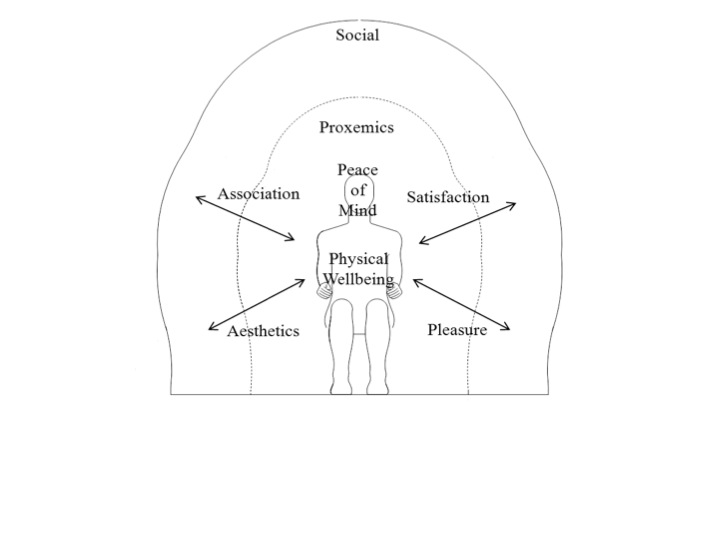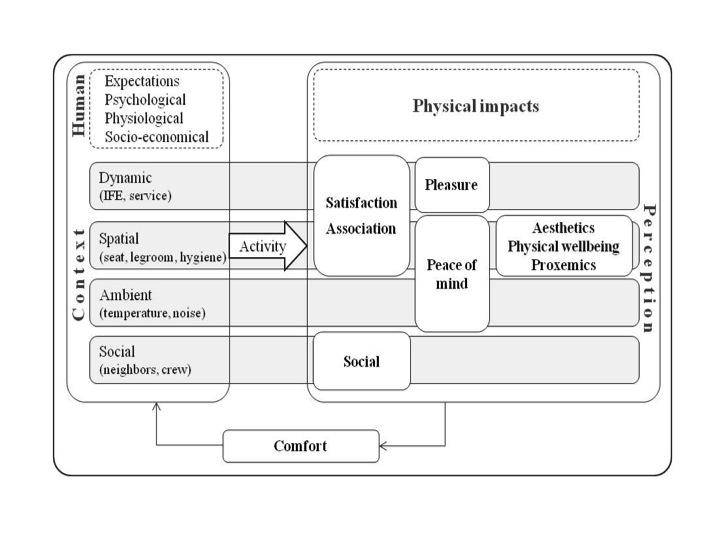Passenger’s experience
Aircraft passenger’s experience of comfort: subjective variables and links to emotional responses
Aircraft passenger comfort is a complex state, improving which is possible through delivering certain type of experiences (e.g. peace of mind, social, etc.), enhancing positive emotional responses (e.g. joy, gratitude) and preventing negative emotions (e.g. frustration). Each of those is elicited by the contextual inputs from the cabin interior (e.g. seat, legroom), and the links were uncovered in this project.

An overview of the experiential aspects of passenger comfort and their relation to the personal and shared space of passengers.
Passenger comfort experience model portraying the relationship among the experiential aspects of aircraft passengers, the elements of the cabin interior, which evoke those experiences and comfort as the result.
References
- Ahmadpour, N., Lindgaard, G., Robert, J-M., Pownall, B. (2014). The thematic structure of passenger comfort experience and its relationship to the context features in the aircraft cabin. Ergonomics, 57(6), 801-815.
- Ahmadpour, N., Lindgaard, G., Robert, J-M. 2015. Identification and differentiation of descriptors for passengers’ experience of comfort and discomfort. Applied Ergonomics.
- Ahmadpour, N., Robert, J-M., Lindgaard, G. (2014). A study of passengers’ real-time emotional responses and comfort experience during the flight using the experience sampling method. In: Y.G. Ji and S. Choi (eds), Advances in Affective and pleasurable design (194-202). AHFE International.

